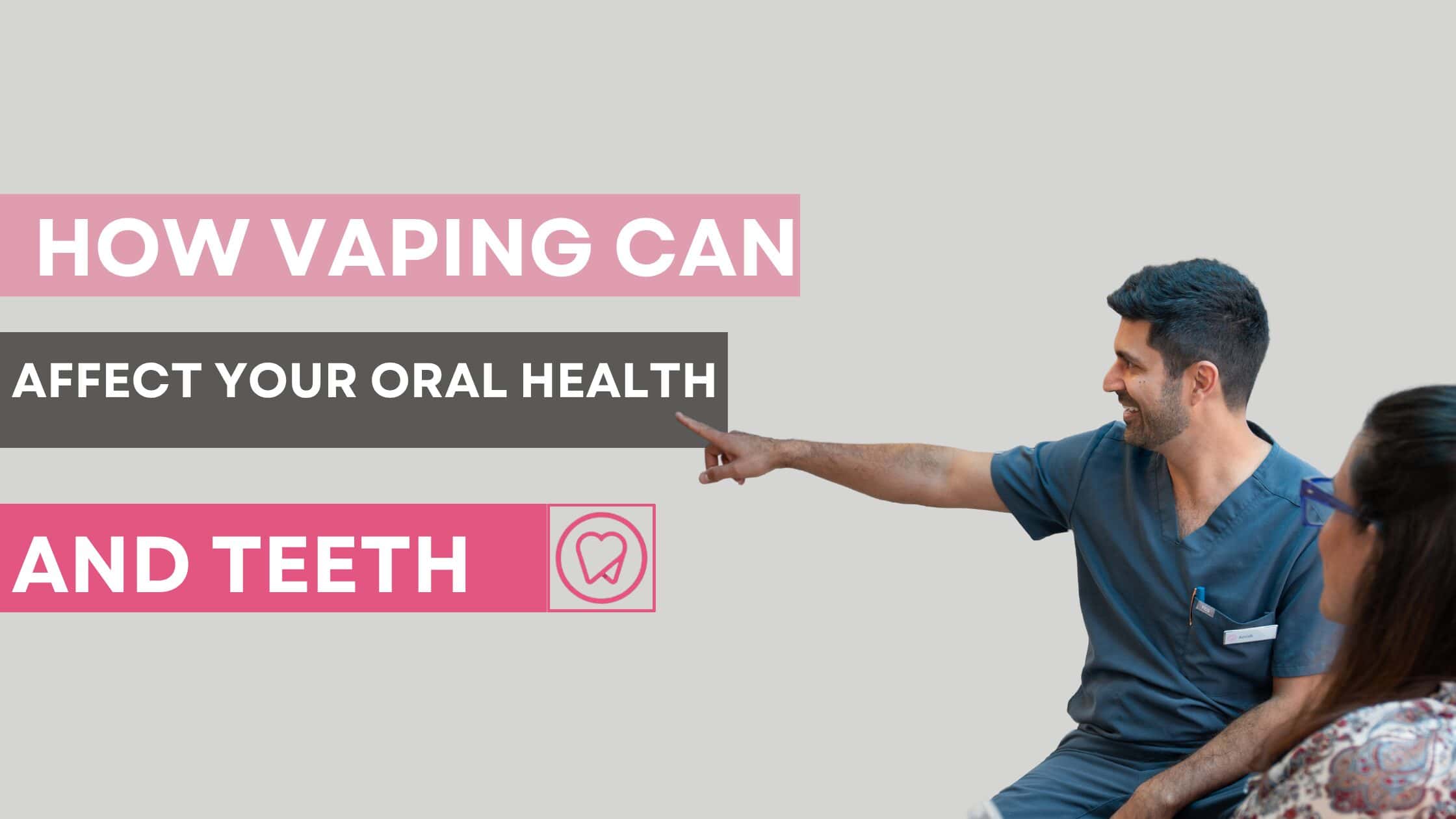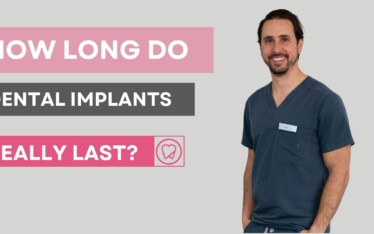How Vaping Can Affect Your Oral Health and Teeth
Vaping has rapidly grown in popularity over the last decade and while it may allegedly (not yet scientifically proven) have fewer harmful chemicals than tobacco, vaping is not without its risks, especially when it comes to your oral health. At Inspired Dental Care in Exeter, we’ve seen a growing number of patients concerned about how vaping might be affecting their teeth and gums. This blog will explore the impact vaping can have on your oral health, dispel some myths, and offer tips to protect your smile.
What is Vaping?
Vaping involves inhaling a vapour created by an electronic cigarette (e-cigarette) or other vaping devices. These devices heat a liquid, often called e-liquid or ‘vape juice’, that usually contains nicotine, flavourings, and other chemicals. While vaping does not produce tar or many of the harmful chemicals found in cigarette smoke, it does introduce substances into your mouth that can have effects on your teeth, gums, and overall oral environment.
How Vaping Affects Your Teeth
Dry Mouth and Reduced Saliva Production
One of the most common side effects of vaping is dry mouth, also known as xerostomia. The ingredients in ‘vape juice’, including nicotine and propylene glycol, can reduce saliva flow. Saliva is essential for maintaining oral health because it helps wash away food particles, neutralise acids produced by bacteria, and repair early damage to tooth enamel.
Without enough saliva, your mouth becomes dry and more vulnerable to tooth decay and gum disease. Dry mouth can also lead to bad breath and a burning sensation in the mouth.
Increased Risk of Tooth Decay
Nicotine and the chemicals in ‘vape juice’ can cause changes in the oral environment, making it easier for harmful bacteria to thrive. These bacteria produce acids that attack tooth enamel, leading to cavities. Furthermore, some vape juices contain sugars or sweeteners, which provide extra fuel for decay-causing bacteria.
Research is still ongoing, but early studies suggest that vaping may increase the risk of tooth decay, especially when combined with poor oral hygiene.
Gum Disease and Inflammation
Gum disease, or periodontal disease, is an inflammatory condition affecting the tissues supporting your teeth. Nicotine in vape juice can constrict blood vessels in the gums, reducing blood flow and the delivery of oxygen and nutrients necessary for healthy gum tissue. This makes it harder for your gums to heal and fight off infection.
In addition, the chemicals in vape vapour can irritate gum tissue and promote inflammation. Patients who vape may experience swollen, red, or bleeding gums, all signs of early gum disease. If left untreated, gum disease can lead to tooth loss.
Discolouration and Staining
While vaping doesn’t produce tar like cigarettes, some users report that their teeth become stained or discoloured over time. This is mainly due to the nicotine and flavouring chemicals in vape juice. Nicotine can cause yellow or brown staining on teeth, while some flavoured vapours contain colouring agents that may also contribute.
Though the staining is often less intense than smoking, it can still affect the appearance of your smile and may require professional cleaning or whitening treatments to improve.
Oral Mucosa Changes and Potential Cancer Risk
There is some concern about the long-term effects of vaping on the oral mucosa, the soft tissues lining the mouth. Some studies suggest that vaping vapour can cause cellular changes in the mouth that might increase the risk of oral cancers, although the evidence is not yet conclusive.
Because vaping is relatively new compared to smoking, the full long-term risks are still being researched. Nonetheless, any exposure to chemicals and nicotine should be approached with caution.
Vaping vs Smoking: Which Is Worse for Your Teeth?
While vaping is generally considered less harmful than smoking tobacco cigarettes, it is not harmless. Traditional smoking exposes your mouth to thousands of toxic chemicals, many of which cause severe oral health problems such as tooth loss, oral cancer, and severe gum disease.
Vaping reduces exposure to many of these harmful chemicals but still delivers nicotine and other irritants that can damage your mouth. If you’re considering switching from smoking to vaping, it’s important to understand that vaping may reduce some risks but does not eliminate oral health concerns.
Tips to Protect Your Oral Health While Vaping
If you vape, here are some practical steps you can take to minimise the impact on your teeth and gums:
- Maintain Excellent Oral Hygiene
Brush your teeth at least twice daily with fluoride toothpaste and floss daily. This helps remove plaque and bacteria that cause decay and gum disease.
- Stay Hydrated
Drink plenty of water to counteract dry mouth and help keep saliva flowing.
- Visit Your Dentist Regularly
Regular oral health assessment and professional cleanings at practices like Inspired Dental Care in Exeter can help catch early signs of damage and keep your smile healthy.
- Limit Sweet and Flavoured E-liquids
Choose vape juices without added sugars or strong colouring agents to reduce the risk of decay and staining.
- Consider Cutting Down or Quitting
If possible, reducing how much you vape or quitting altogether is the best way to protect your oral and overall health. Your dentist can provide advice or recommend support services to help you quit.
When to See Your Dentist
If you vape and notice any of the following, it’s important to book an appointment with one of our dentists at Inspired Dental Care:
- Persistent dry mouth or bad breath
- Red, swollen, or bleeding gums
- Tooth sensitivity or pain
- Changes in the colour or texture of your mouth’s soft tissues
- Visible tooth staining or discolouration
Early intervention can prevent more serious oral health problems and keep your smile in great shape.
Be aware of these risks
Vaping is often marketed as a safer alternative to smoking, but it is not risk-free, especially for your oral health. The effects of nicotine and other chemicals found in vape juice can lead to dry mouth, increased risk of tooth decay, gum disease, and even staining of your teeth. At Inspired Dental Care in Exeter, we encourage all our patients to be aware of these risks and maintain strong oral hygiene habits.
If you vape and want to discuss how it might be affecting your teeth or gums, our team is here to help. Contact us to schedule a consultation and keep your smile looking and feeling its best.



